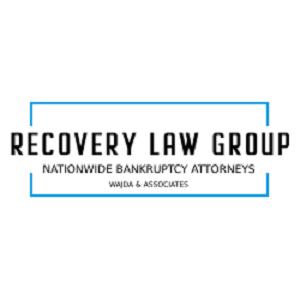Can my medical debt be discharged in bankruptcy?” – asks every American citizen!

There’s no official Bankruptcy
Code chapter to declare medical bankruptcy. It does not exist as particular
model of bankruptcy relief ensured by the federal government. ‘Medical
bankruptcy,’ the term defines bankruptcy due to unpaid medical bills or debt. A
vast majority of Americans suffer from exorbitant cost of medical treatments,
and are burdened with astonishingly high medical bills. When healthcare bills
become crushing, a few wish to know if declaring bankruptcy would help them get
rid of it.
There are no specific chapters of
Bankruptcy Code exclusive to medical bankruptcy. Lately, the increased examples
of people declaring bankruptcy owing to medical debt caused by popular use of
the term ‘medical bankruptcy.’ While the debate as to actual sternness of the
trouble is still blazing, there is little or no doubt about the fact that
massive medical bills are leading to bankruptcy.
Many individuals, despite having
health insurance, have found themselves saddled by the healthcare debt caused
by the charges not covered by their insurance policy. In order to ease the debt
burden, some people turn to declare bankruptcy as a quick resolve. People
become able to get rid of their medical bills through either Chapter 7
Bankruptcy or Chapter 13 Bankruptcy.
Is healthcare or medical debt
dischargeable in bankruptcy?
You are not allowed to restrict a
bankruptcy case to only medical debt, however you can expect relaxation from it
through a bankruptcy process. In bankruptcy, healthcare treatment bills are
considered ‘non-priority unsecured debt, meaning it is dischargeable, and can
be forgiven.’
Chapter 7 bankruptcy and medical
debt
Chapter 7 bankruptcy has been
formed to aid in people’s unaffordability to pay their debts off. The court is
supposed to take into account what you precisely owe, if you have any sellable
assets and your income to contribute to paying the debt off. Chapter 7
Bankruptcy will eliminate your medical bill within a few months, however it is
not an option for every bankruptcy filer. Some specifics:
Chapter 7 bankruptcy happens to
be means-based, which means in order to file bankruptcy under it, your earnings
should be below your current state’s median for the household of your size.
Certain properties of yours might
be liquidated to squeeze the money out of it and pay off the creditors.
The process typically takes 4-6
months. When your bankruptcy filing gets confirmed, your eligible debts get eliminated
or forgiven.
Chapter 13 bankruptcy and medical
debt
Under this Bankruptcy Code
chapter, you are provided with a 3 to 5-year repayment plan. The plan is
basically based on your income levels and debt. Some or all of your liabilities
might get discharged by the time the repayment plan gets over, setting you free
from all further payments.
Your debt must not exceed a
preset level. In order to file Chapter 13 bankruptcy, you should not have debt
exceeding the $394,725 limit in unsecured debt, and $1,184,200 in secured debt.
You are obligated to have a
regular, stable income. For Chapter 13 bankruptcy to successfully work, you
will require the means to pay off your debt, even at a lowered level.
Resolutions usually take longer. While
Chapter 7 is over in 4-6 months once the proceedings are over, Chapter 13 tends
to extend over years.
Consult with bankruptcy attorney
in California, working with Recovery Law group for medical bill bankruptcy as a
solution.
Post Your Ad Here
Comments